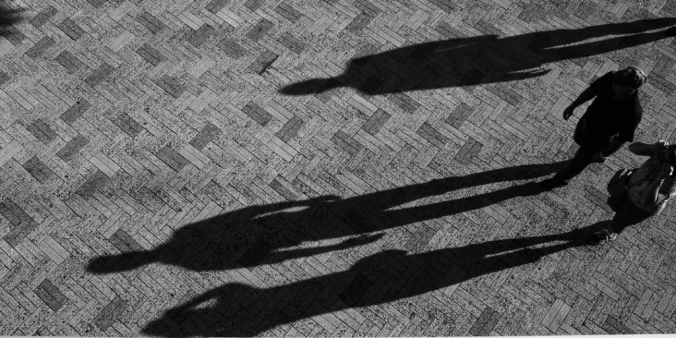by Clarissa Giebel
Young-onset dementia (YOD) affects approximately 40,000 people in the UK alone. If someone has a diagnosis of dementia, and is below 65 years of age, they are diagnosed with YOD. But that doesn’t mean it only happens to people in their 60s. There are people diagnosed with YOD at all ages, including in their 40s, 30s and even 20s in extreme cases.
There are obviously lots of lifestyle differences between one’s 30s and one’s 50s. People might have a busy career and job, might have financial restraints and a mortgage, might have children to care for, and sometimes their parents to care for as well. If we try and compare this to someone in their 80s for instance, they may be retired, might be frailer and have at times limited mobility, and are less likely to have caring responsibilities for someone (unless it is their spouse).
Receiving a diagnosis of dementia for someone in their 30s or 40s can have a much different impact than for someone in their 80s. However it’s not only the person living with the dementia that is affected by it, but their families too. It can come as a great shock if your spouse gets diagnosed so early in their life. When caring for a spouse with YOD, the family carer is most often in employment and has other responsibilities. In some cases, the family carer may decide to give up their job to support their loved one with YOD full-time. With this backdrop, more and more research is looking into the needs of people with YOD and their families.
At the National Institute for Health Research (NIHR) Collaboration for Leadership in Applied Health Research and Care North West Coast (CLAHRC NWC), we have recently evaluated a memory service in Wigan, speaking to people living with YOD and their families, and speaking to memory clinic staff. We wanted to find out specifically how a memory service, a structure in the NHS that provides memory assessments for people referred to by General Practitioners (GP), and provides dementia diagnoses, is adapted to the needs of people with YOD and their families.

We found that in Wigan, care for people after the YOD diagnosis is very limited. The support offered after diagnosis doesn’t seem to be tailored to the needs of people experiencing YOD, and their families. The support after a YOD diagnosis, such as support groups and information that is available in this area of the North West of England was inadequate and not adapted to those with YOD .
That’s why we at the CLAHRC NWC, together with Wigan Council and the local NHS Trust, are holding two large workshops, one with YOD care professionals and one with people with YOD and family carers, to improve post-diagnostic support in YOD. Both workshops are free to attend, and by doing group activities with attendees, we can better understand how care services for people with YOD and their families should be shaped. One of those workshops has already taken place, and was attended by over 30 care professionals. Attendees came from a number of services, including the local NHS Trust, several day care providers, and local care homes. The next step will be to take their perspectives to people living with YOD and their families, and come up with services that truly met the needs, and wishes, to create a tailored service.
Of course, YOD affects a small proportion of people with dementia. Of the 850,000 people estimated to be living with dementia in the UK, only 4-5 % are living with YOD, which may explain why there may not be as many services for YOD at present. However part of the reason could still be a lack of awareness. So, what can we do to raise awareness that even people as young as 31 can experience dementia? Whilst the recent Dementia Choir has certainly raised the profile of YOD a little bit, a much wider national awareness strategy is needed. If people are aware that someone much younger than 65 can develop dementia, this might help people to go to their GP much quicker, and get support.
Hopefully, if we raise more awareness, the support that’s available after a diagnosis, such as support groups, activities, or day care centres, are much better equipped to what people with YOD and their families need.
 Clarissa Giebel is a postdoctoral dementia care researcher at the University of Liverpool and the NIHR CLAHRC NWC. She has worked on multiple NIHR- and Alzheimer’s Society funded dementia projects, and her main research interests focus on enabling people with dementia to stay in their own home independently for as long as possible, and investigate health inequalities that might hinder people with dementia from accessing the right care. Amongst others, she is currently leading an international Alzheimer’s Society funded project looking at health inequalities in accessing formal dementia care in England and the Netherlands. You can follow Clarissa on Twitter at @ClarissaGiebel.
Clarissa Giebel is a postdoctoral dementia care researcher at the University of Liverpool and the NIHR CLAHRC NWC. She has worked on multiple NIHR- and Alzheimer’s Society funded dementia projects, and her main research interests focus on enabling people with dementia to stay in their own home independently for as long as possible, and investigate health inequalities that might hinder people with dementia from accessing the right care. Amongst others, she is currently leading an international Alzheimer’s Society funded project looking at health inequalities in accessing formal dementia care in England and the Netherlands. You can follow Clarissa on Twitter at @ClarissaGiebel.
This year we are using the #ESRCBetterLives hashtag to highlight outstanding social science research and show how social science is relevant to everyone. Our Better Lives theme for May is ‘mental health’. Watch out for our tweets and tell us about research that has inspired you!